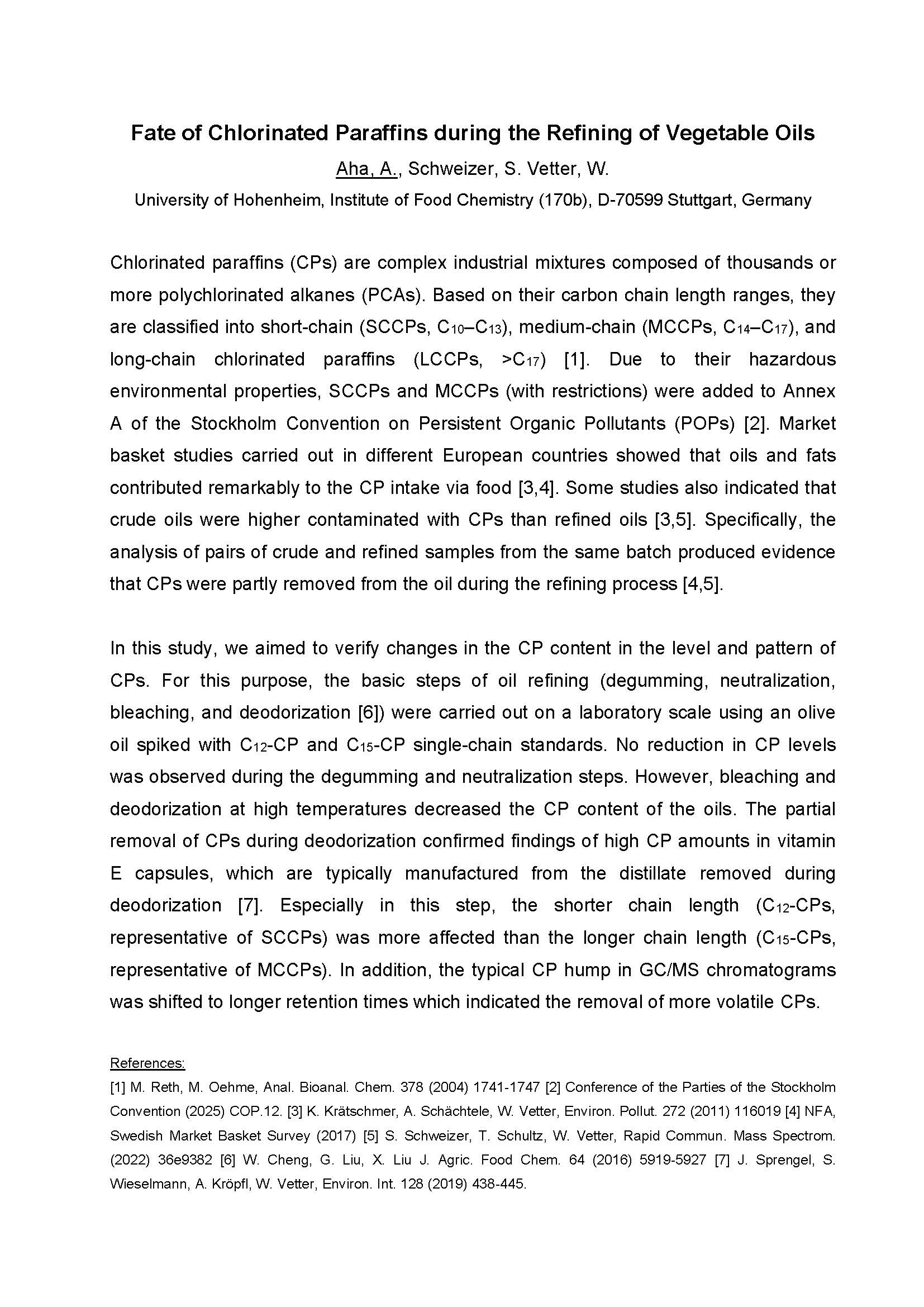Chlorinated paraffins (CPs) are complex industrial mixtures composed of thousands or more polychlorinated alkanes (PCAs). Based on their carbon chain length ranges, they are classified into short-chain (SCCPs, C10–C13), medium-chain (MCCPs, C14–C17), and long-chain chlorinated paraffins (LCCPs, >C17) [1]. Due to their hazardous environmental properties, SCCPs and MCCPs (with restrictions) were added to Annex A of the Stockholm Convention on Persistent Organic Pollutants (POPs) [2]. Market basket studies carried out in different European countries showed that oils and fats contributed remarkably to the CP intake via food [3,4]. Some studies also indicated that crude oils were higher contaminated with CPs than refined oils [3,5]. Specifically, the analysis of pairs of crude and refined samples from the same batch produced evidence that CPs were partly removed from the oil during the refining process [4,5].
In this study, we aimed to verify changes in the CP content in the level and pattern of CPs. For this purpose, the basic steps of oil refining (degumming, neutralization, bleaching, and deodorization [6]) were carried out on a laboratory scale using an olive oil spiked with C12-CP and C15-CP single-chain standards. No reduction in CP levels was observed during the degumming and neutralization steps. However, bleaching and deodorization at high temperatures decreased the CP content of the oils. The partial removal of CPs during deodorization confirmed findings of high CP amounts in vitamin E capsules, which are typically manufactured from the distillate removed during deodorization [7]. Especially in this step, the shorter chain length (C12-CPs, representative of SCCPs) was more affected than the longer chain length (C15-CPs, representative of MCCPs). In addition, the typical CP hump in GC/MS chromatograms was shifted to longer retention times which indicated the removal of more volatile CPs.
